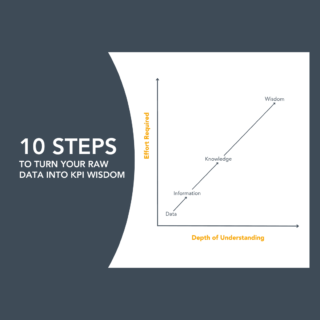I have been coaching four measures team recently as they practice putting their own strategy through Stacey Barr’s PuMP® Performance Measurement 8-step process. A common struggle for employees is finding time in their busy workloads to improve their approach to performance measurement so that they have the insights they need to make meaningful progress. Though they think improving performance is important, it doesn’t seem to be urgent. In a conversation between Stacey and I, we shared these 4 “D’s” as a systematic approach to find more time and Stacey wrote about it in her Measure Up newsletter. Here is Stacey’s article:
Last week a subscriber to the Measure Up newsletter unsubscribed. This was their reason for leaving: ”no time to “measure performance” :)” Not having the time to measure performance raises a big red flag. It says that running around doing too many things is more important than finding out the right things to do.
Not having the time is an excuse, not a reason, for not measuring performance. You can’t be too busy driving your car to not monitor your navigation, your speed and your safety. If you never monitor them, you know what will happen: you’ll end up taking even more time to get where you want to go, if you get there at all.
The real reason we don’t take time to measure what matters is that we have submitted to waste in our ways of getting things done. Waste breeds like bunnies if you leave it unchecked.
If you make the effort to reduce waste enough to start measuring what matters, then the rest of the waste will follow it out the door when you use those measures of what matters.
There are four ways to reduce waste initially, to start measuring something important:
DELETE tasks that really aren’t that important or essential.
Be honest and ruthless here. There will certainly be things you’re doing that just don’t need to be done:
- Reading that is just interesting but not useful (this includes emails).
- Attending every meeting you’re invited to, or staying longer than you need to.
- Any task for which you can’t describe a compelling purpose that links to your work priorities, or an unbearable consequence of not doing it.
Practice saying ‘no’ and see what happens. It won’t be as bad as you think.
DELEGATE tasks that someone else can do for you.
Sure, no-one can do it like you can. But just because you’re good at something doesn’t mean you have to do it. There is a lot of stuff you can delegate to someone else:
- Travel arrangements.
- Research (or at least the first stages of gathering data).
- Managing emails and responding to ones that can use a template response.
Read Timothy Ferriss’ book The 4-Hour Work Week to stretch your mind about what actually can be delegated.
DOWNSIZE tasks that you’re gold-plating or making overly complex.
It’s easy to do more than we need to. I love the concept of Minimum Viable Product (MVP), from the software industry. You do the least amount of work you can, to produce the smallest output that will meet the needs of the user. It still has to be great quality, but just has the fewest features. Think about MVP when you:
- Design a meeting or workshop or presentation.
- Write an email or report or proposal.
DELAY tasks that really aren’t that urgent.
When you can’t delete, delegate or downsize a task, check if you can in fact delay it. Will any small children die if you put it off until next month?
- Starting a new project (don’t you have enough projects on the go already?).
- Joining a new networking group.
- Meeting with people to ‘catch up over coffee’.
I use an online app called Asana which helps me see the big picture and the detail of my planned tasks, and I can easily delay less urgent things without fear of them being forgotten.
I think I might have a fifth ‘D’ word too…
DELINEATE tasks by blocking like tasks together.
You can lose a lot of time task switching. It takes a few minutes for your mind to shift from a conversation to an email to writing a report and back to another email which is then interrupted by another conversation. Blocking like tasks together can really free up time and make you more productive:
- Check emails just once or twice a day, at the same times of day, and get your inbox to zero.
- Set aside a few blocks of time in the week just for face-to-face meetings.
- Lock yourself away from interruptions (people, phone, window views, food) to work on a sole task like reporting writing or research.
Remember: no-one is perfectly productive. It is 100% certain that there is waste in your work processes. Pick off the low hanging fruit now, and then measure what matters to pick the rest.
TAKE ACTION:
Just pick one of the ‘D’ words – delete, delegate, downsize or delay – and look for opportunities in your work schedule to practice it

Stacey Barr, the Performance Measure Specialist



